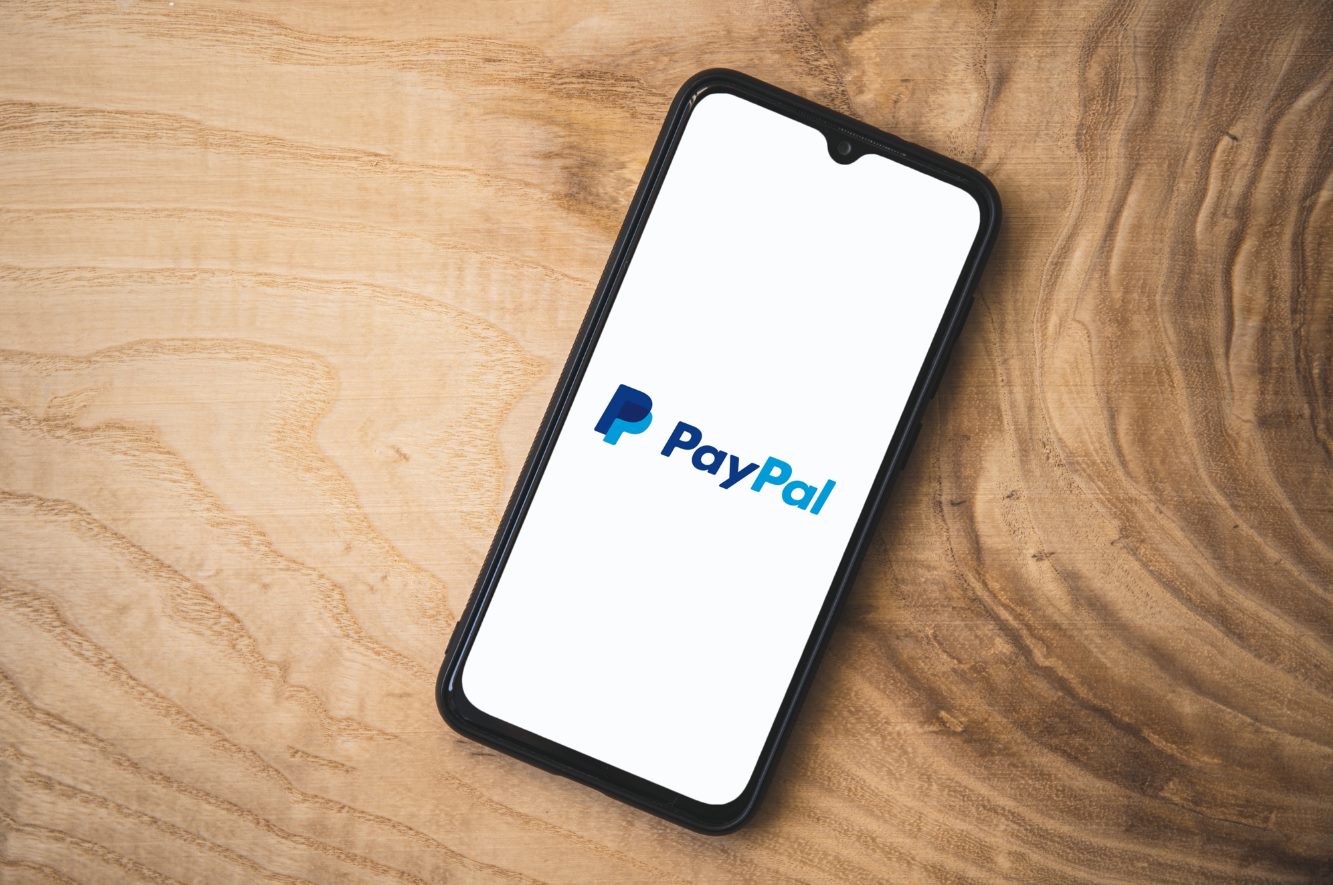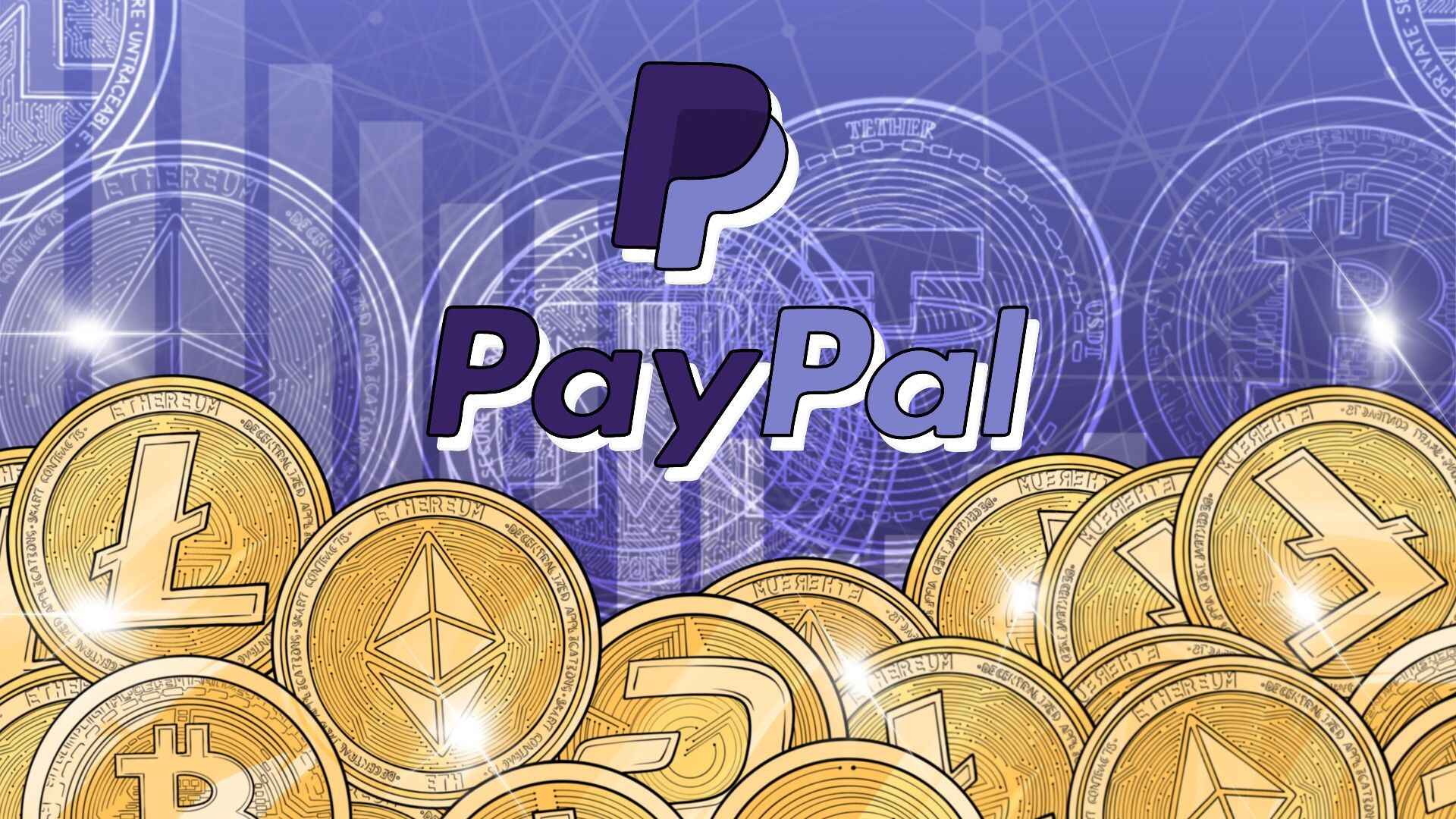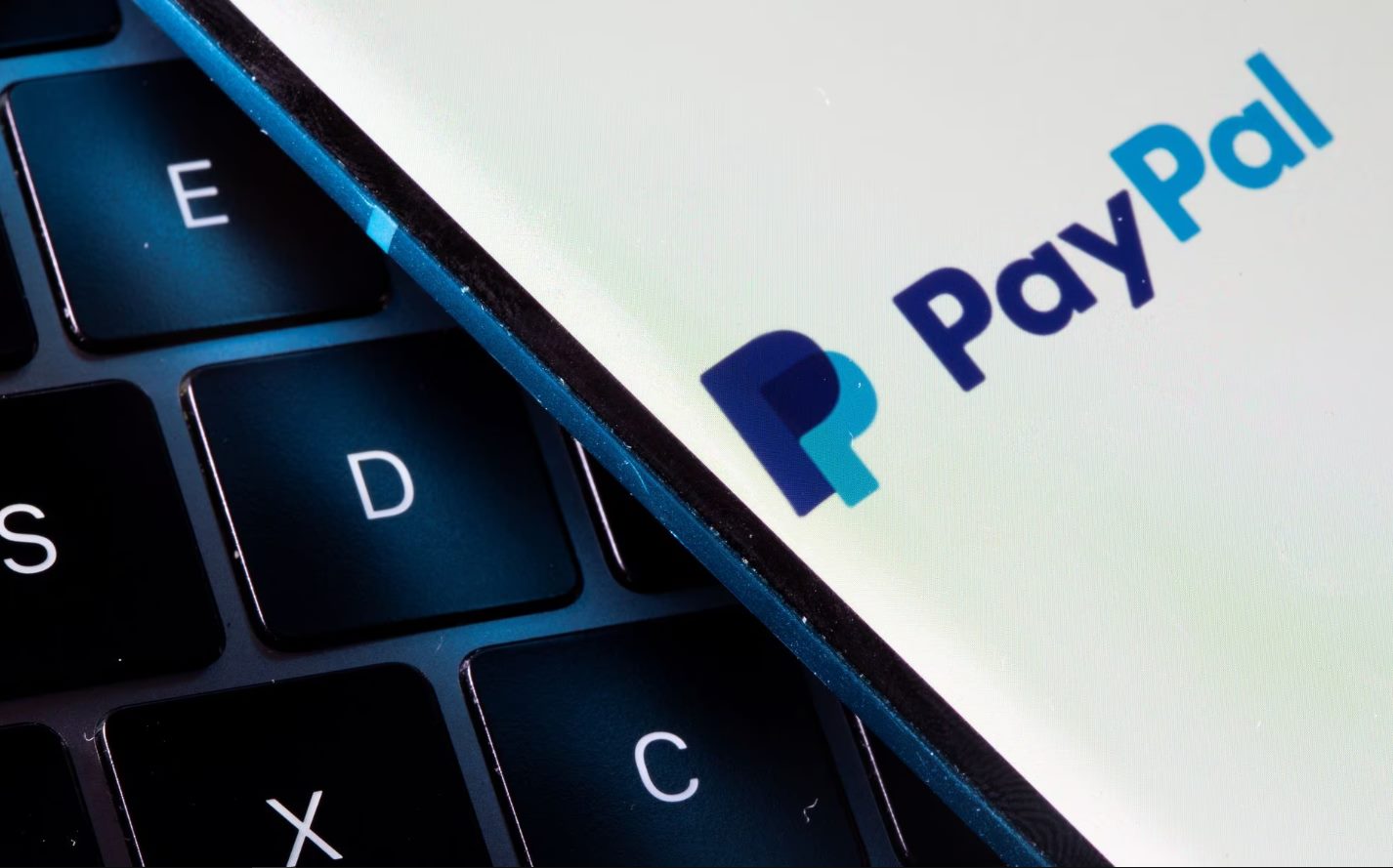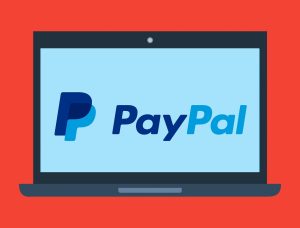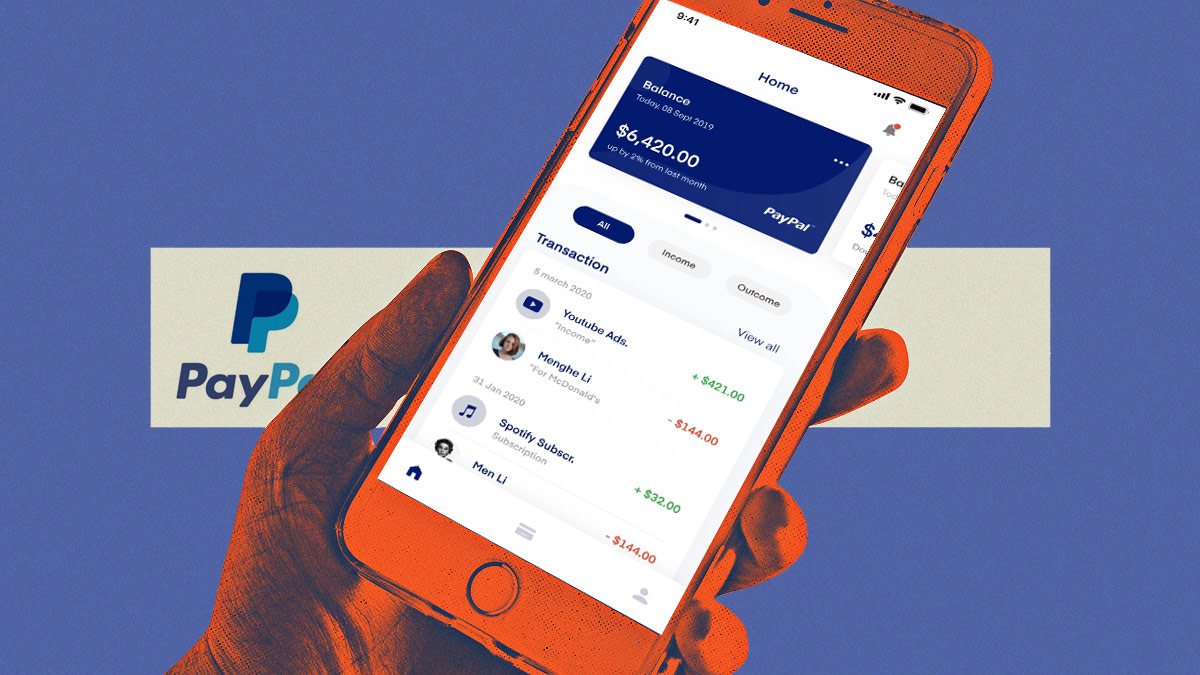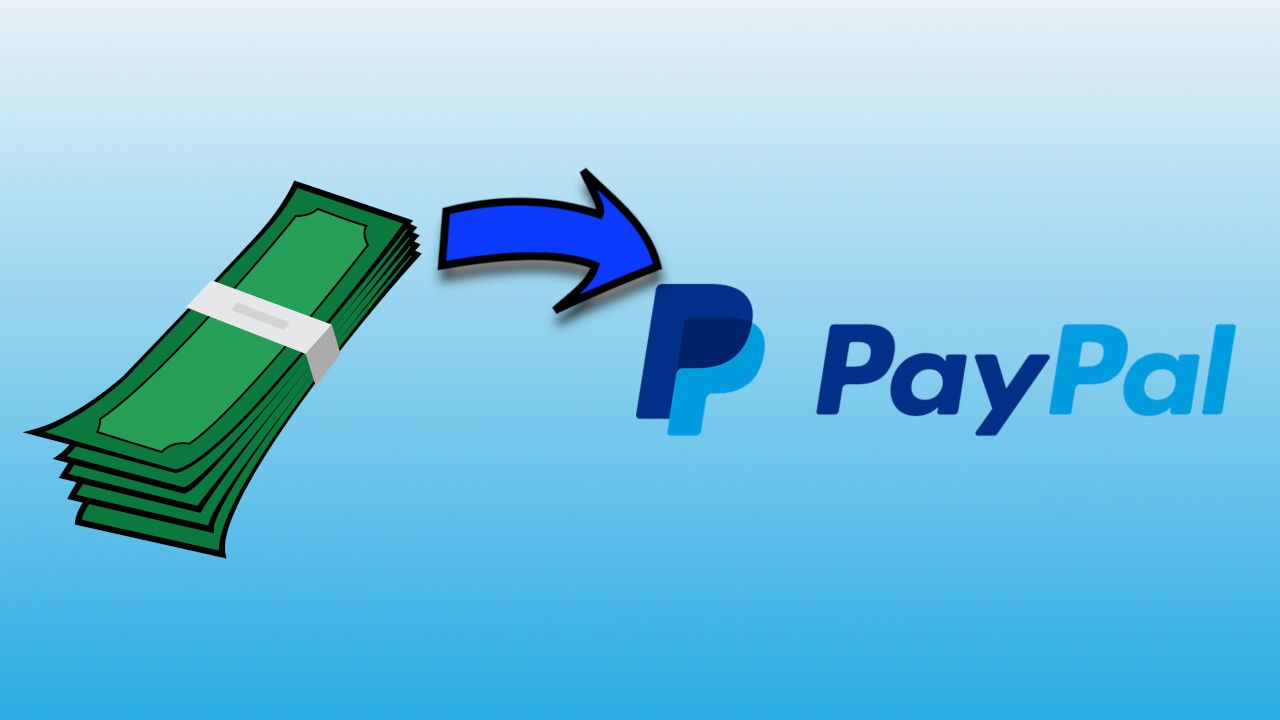Introduction
PayPal, the popular online payment platform, has revolutionized the way we transact and transfer money. With its convenient and secure system, PayPal has become a trusted choice for millions of users worldwide. But have you ever wondered how PayPal operates behind the scenes? Specifically, which bank does PayPal use to facilitate its financial transactions?
As an online platform, PayPal needs a bank to handle and process the monetary transactions made by its users. This partnership with a bank is crucial for ensuring the smooth functioning of PayPal’s services. The bank acts as a backbone, powering the financial infrastructure that allows users to send and receive money electronically.
In this article, we will delve into the details of which bank PayPal uses and explore how this partnership functions. Additionally, we will discuss the benefits of PayPal’s collaboration with its partner bank and address any concerns you may have about the safety of your funds.
So, if you’ve ever been curious about the inner workings of PayPal and the bank behind its operations, read on to uncover the answers to your questions.
Why does PayPal need a bank?
PayPal, as an online payment platform, needs a bank to handle numerous financial operations that are essential for its functioning. A bank provides the necessary infrastructure and expertise to process and transfer funds securely, ensuring there are no delays or complications in the transaction process.
One of the primary reasons PayPal needs a bank is for holding and managing customer funds. When you add money to your PayPal account or receive payments, the funds are stored and safeguarded in an account held by PayPal’s partner bank. This ensures that your money is protected and only accessible to you.
In addition to holding funds, a bank facilitates the transfer of money between PayPal accounts, as well as between PayPal and other financial institutions. When you send money to another PayPal user or make a purchase using PayPal, the bank ensures that the transaction is processed swiftly and accurately.
Furthermore, PayPal’s partnership with a bank allows it to offer additional financial services to its users. These services may include the ability to link a bank account or credit card to your PayPal account, enabling seamless transfers and payments. The bank verifies the legitimacy of the linked account or card and facilitates the necessary transactions.
Another important aspect of PayPal’s collaboration with a bank is its compliance with regulatory requirements. As an online payment platform, PayPal must adhere to various financial regulations and anti-money laundering measures. Partnering with a bank helps ensure that PayPal follows these regulations and remains in good standing with regulatory authorities.
Overall, the bank plays a crucial role in supporting PayPal’s operations, from securely holding and managing funds to facilitating seamless transfers and ensuring regulatory compliance. Without a bank partner, PayPal’s ability to provide its services effectively and efficiently would be severely hindered.
Which bank does PayPal use?
PayPal has strategically partnered with various banks around the world to support its financial operations. The specific bank that PayPal uses can vary depending on the country or region. However, one notable bank that PayPal has collaborated with is JPMorgan Chase & Co.
Under this partnership, JPMorgan Chase & Co. acts as the bank that holds and manages the funds of PayPal users. JPMorgan Chase & Co. is a well-established and trusted financial institution, known for its expertise and robust security measures.
By partnering with JPMorgan Chase & Co., PayPal benefits from its extensive banking infrastructure and resources. This collaboration allows for the smooth processing of transactions, providing users with a secure and efficient payment experience.
It’s important to note that while JPMorgan Chase & Co. is one of PayPal’s partner banks, PayPal’s partnerships extend beyond a single bank. PayPal has established relationships with numerous financial entities, both locally and globally, to ensure the smooth functioning of its services worldwide.
This diverse network of partner banks allows PayPal to cater to the unique regulations and requirements of different countries and regions. It also provides an added layer of flexibility and resilience, minimizing the risk of disruption to PayPal’s services in case of any issues with a specific banking partner.
Overall, while JPMorgan Chase & Co. is one of the renowned banks that PayPal collaborates with, PayPal’s banking partnerships are dynamic and extensive to meet the evolving needs of its global user base.
How does PayPal work with its partner bank?
PayPal’s partnership with its chosen bank, such as JPMorgan Chase & Co., involves a close collaboration to ensure the smooth processing of financial transactions and the secure management of funds. This collaboration involves various key areas of cooperation:
Account Management: When you create a PayPal account, it is linked to a bank account or credit card of your choosing. PayPal works closely with its partner bank to facilitate the verification and linking process. This allows you to seamlessly transfer funds between your PayPal account and your linked bank account or card.
Fund Holding and Management: When you add funds to your PayPal balance or receive payments, the funds are held by PayPal’s partner bank. The bank ensures that your funds are securely managed and readily available for transactions when you need to make purchases or transfer money.
Transaction Processing: When you send money to another PayPal user or make a payment using PayPal, the transaction is processed through PayPal’s payment platform. PayPal and its partner bank work together to ensure that the transaction is conducted smoothly and securely. The bank verifies the availability of funds and facilitates the transfer of money between the sender and recipient.
Risk Management and Security: PayPal and its partner bank collaborate closely to mitigate the risks associated with online financial transactions. They employ advanced security measures, including encryption protocols and fraud detection systems, to protect users’ data and funds from unauthorized access or fraudulent activities.
Regulatory Compliance: PayPal, as a financial institution, is subject to regulatory requirements and anti-money laundering measures. Its partnership with a bank helps ensure compliance with these regulations. The bank assists PayPal in implementing and adhering to the necessary procedures to meet the regulatory standards set by authorities.
Technical Integration: PayPal’s platform is seamlessly integrated with its partner bank’s systems to facilitate real-time transaction processing and data synchronization. This integration allows for quick and accurate updates of account balances, transaction histories, and other financial information.
Overall, PayPal’s partnership with its chosen bank involves a close working relationship to ensure the secure and efficient functioning of its payment platform. Through collaboration in areas such as account management, fund holding and management, transaction processing, risk management, regulatory compliance, and technical integration, PayPal and its partner bank work together to provide users with a seamless and reliable payment experience.
The benefits of PayPal’s partnership with a bank
The partnership between PayPal and its chosen bank, such as JPMorgan Chase & Co., brings several significant benefits to both the company and its users. Let’s explore some of the key advantages:
Seamless Financial Transactions: The collaboration between PayPal and a bank ensures smooth and hassle-free financial transactions. Users can easily link their bank accounts or credit cards to their PayPal accounts, allowing for seamless transfers of funds between different platforms and institutions.
Broad Access to Financial Services: PayPal’s partnership with a bank expands its range of financial services. This includes the ability to link and verify bank accounts or cards, facilitating a variety of transactions such as withdrawals, deposits, and payments.
Enhanced Security Measures: Teaming up with a reputable bank adds an extra layer of security to PayPal’s operations. Banks have robust security systems in place to safeguard users’ funds and personal information, reducing the risk of fraud or unauthorized access.
Regulatory Compliance: Partnering with a bank helps PayPal meet regulatory requirements and financial industry standards. Banks have established frameworks to ensure compliance with regulations relating to money laundering, anti-fraud measures, and customer protection. This collaboration enables PayPal to operate within legal boundaries and maintain the trust of its users.
Financial Expertise and Resources: Banks possess extensive financial expertise and resources that can benefit PayPal. They provide guidance and support in areas such as risk management, compliance, and technological advancements. This partnership allows PayPal to stay competitive and continuously improve its services.
Global Reach: PayPal’s collaboration with different banks across the globe enables worldwide accessibility. Partnering with local banks in different countries allows PayPal to overcome regulatory challenges, support local currencies, and offer seamless cross-border transactions to users around the world.
Improved Customer Confidence: A strong partnership with a reputable bank instills confidence in PayPal’s users. Knowing that their funds are held and managed by a trusted financial institution ensures that users can confidently use PayPal for their financial transactions.
Operational Stability: By relying on a banking partner, PayPal can leverage the established infrastructure and operational stability of the bank. This ensures that the financial systems supporting PayPal’s services remain robust and reliable, even during periods of high transaction volumes or unexpected events.
These benefits highlight the importance of PayPal’s partnership with a bank. Through collaboration, PayPal can provide seamless financial services, enhanced security measures, and access to a global network, all while maintaining regulatory compliance and instilling customer confidence.
Is my money safe with PayPal’s partner bank?
Ensuring the safety and security of users’ funds is a top priority for PayPal and its partner bank. When you entrust your money with PayPal, it is held and managed by the bank, providing an added layer of protection. Here’s why your money is safe with PayPal’s partner bank:
Regulated and Supervised: PayPal’s partner bank operates within the framework of financial regulations and undergoes regular audits and supervision. This ensures that the bank follows strict security protocols and maintains the necessary standards to safeguard customers’ funds.
Financial Stability: PayPal collaborates with reputable and established banks that have a solid financial foundation. These banks have the resources and expertise to handle large amounts of transactions and possess the necessary liquidity to honor users’ funds when they need to make withdrawals or payments.
Deposit Insurance: In many countries, including the United States, banks provide deposit insurance to protect customers’ money. This means that even in the unlikely event of a bank failure, your funds deposited with PayPal’s partner bank may be covered up to a certain amount by the deposit insurance scheme.
Encryption and Security Measures: PayPal’s partner bank employs state-of-the-art encryption technology and stringent security measures to protect users’ financial information and funds. This includes measures such as multi-factor authentication, secure socket layer (SSL) encryption, and fraud detection systems to prevent unauthorized access and fraudulent activities.
Fraud Protection: PayPal works closely with its partner bank to detect and prevent fraudulent transactions. Advanced risk management systems are in place to identify suspicious activities and notify users promptly. In the event of unauthorized transactions, PayPal has a buyer protection policy that may cover eligible cases, offering an additional level of confidence and security.
Transparency and Accountability: Both PayPal and its partner bank maintain transparency in their operations. Users can access their account activity, balance, and transaction histories, allowing for easy monitoring and verification. Regular updates and notifications are provided to users, keeping them informed about their financial activities.
User Agreement and Terms: When you open a PayPal account, you enter into a user agreement that outlines the terms and conditions regarding the storage and management of your funds. This agreement provides clarity on your rights and responsibilities as a PayPal user, reinforcing the safety measures implemented by PayPal and its partner bank.
While PayPal and its partner bank take various measures to ensure the safety of your funds, it is always advisable to practice good online security habits. This includes using strong passwords, regularly monitoring your account activity, and promptly reporting any unauthorized transactions to PayPal’s customer support.
Overall, PayPal’s partnership with a reputable bank ensures that your money is held and managed securely. The collaboration between PayPal and its partner bank, coupled with robust security measures and regulatory compliance, provides a solid foundation for the safety of your funds.
Alternatives to PayPal’s partner bank
While PayPal’s partnership with its chosen bank provides a reliable and secure financial infrastructure, it’s important to note that there are alternative banking options available to users. These alternatives offer similar services and features that can be considered as alternatives to PayPal’s partner bank. Here are a few options:
Traditional Banks: Apart from PayPal’s partner bank, traditional banks offer a wide range of financial services, including online banking. With a traditional bank account, you can link it to your PayPal account for seamless transfers and enjoy the benefits and convenience of managing your finances in one place.
Online Banks: Online banks, also known as digital banks, are becoming increasingly popular. They offer a range of services and often have lower fees compared to traditional banks. Online banks provide online and mobile banking platforms, making it convenient for you to manage your finances anytime, anywhere.
Payment Processors: In addition to PayPal, several payment processors offer similar services and operate as intermediaries between buyers and sellers. These payment processors often have their own partner banks or financial institutions that handle fund management and transaction processing.
Peer-to-Peer Payment Apps: Peer-to-peer payment apps have gained popularity in recent years. Apps like Venmo, Square Cash, and Zelle enable you to send and receive money directly from your bank account or debit card. These apps focus on quick and easy peer-to-peer transactions.
Cryptocurrency Wallets: Cryptocurrency wallets such as Bitcoin wallets provide an alternative form of digital currency storage and transactions. While not directly linked to traditional banking systems, they offer a decentralized and secure means of transferring and storing money.
When considering alternatives to PayPal’s partner bank, it’s important to evaluate factors such as fees, convenience, security measures, customer support, and the availability of additional financial services. Each alternative may have its own advantages and limitations, so it’s worth researching and comparing multiple options to find the one that best suits your needs.
Ultimately, the choice of an alternative will depend on your personal preferences and financial requirements. Whether you choose to stick with PayPal’s partner bank or explore other banking options, it’s essential to prioritize safety, security, and ease of use when managing your finances.
Conclusion
Partnering with a bank is essential for PayPal to provide its users with a secure and seamless online payment experience. The specific bank that PayPal collaborates with, such as JPMorgan Chase & Co., plays a vital role in managing and processing financial transactions. This collaboration brings numerous benefits, including seamless fund transfers, enhanced security measures, regulatory compliance, access to financial services, and global reach.
PayPal’s partnership with a reputable bank ensures that your money is safely held and managed. The bank’s financial stability, regulated operations, encryption protocols, and risk management systems provide an added layer of security to protect users’ funds and personal information.
While PayPal’s partner bank is a trusted entity, it’s important to be aware that alternative banking options exist. Traditional banks, online banks, payment processors, peer-to-peer payment apps, and cryptocurrency wallets offer alternatives for managing your finances. These alternatives can provide convenience, lower fees, and additional features that may better suit your individual needs.
As technology advances and financial services continue to evolve, PayPal and other online payment platforms will likely expand their partnerships with banks and explore new avenues to enhance customer experience and security.
Whether you choose to rely on PayPal’s partner bank or explore other alternatives, it’s crucial to prioritize safety, security, and ease of use. By making an informed decision and adopting good online security practices, you can confidently engage in financial transactions and enjoy the convenience of online payments.
Ultimately, PayPal’s partnership with its chosen bank ensures that you can trust the platform to handle your funds securely and efficiently. Whether you use PayPal’s services for personal or business purposes, this partnership enables you to conduct transactions with peace of mind, knowing that your money is in safe hands.









